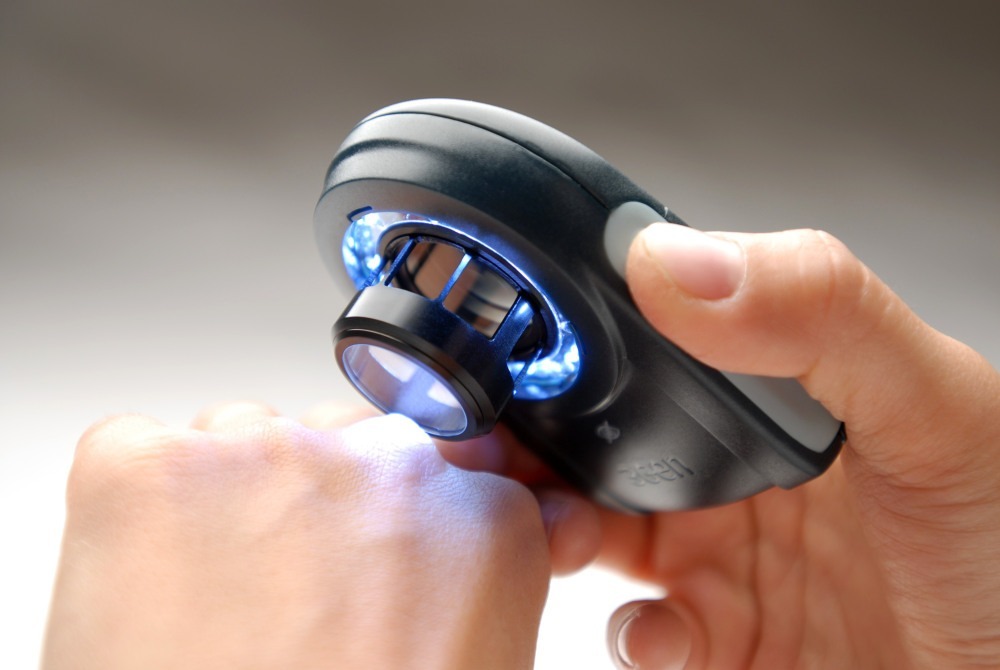1 in 5 Americans will develop skin cancer in their lifetime.
Over 2.35 million people live in the greater Pittsburgh area, which means that over 470,000 of us in this area will develop skin cancer in our lifetimes. There are more new cases of skin cancer each year than all cancers of the breast, prostate, lung, and colon combined. Early detection through skin cancer screening makes it possible to fight back, as most skin cancers are curable if found and addressed early.
In-office skin cancer screenings, as well as self-skin exams, are an important piece for early detection. A skin screening is intended to look for skin cancer before you may have any symptoms, which can help find cancer at an early stage. When abnormal tissue or cancer is found early, it may be easier to treat. By the time symptoms appear, cancer may be significantly larger or have a higher likelihood to spread. However, if a skin cancer screening is recommended, that does not necessarily mean your provider believes you have cancer. Skin cancer screenings are precautionary and given to a person who has no cancer symptoms.
Who Should Get Screened for Skin Cancer?
It is recommended that everyone should attend a skin cancer screening annually, but there are those who are more at-risk of developing skin cancer. Those at higher risk of developing skin cancer include people with:
- A family history of skin cancer
- A personal history of skin cancer
- A history of frequent sun exposure
- More than 50 moles
- One or more blistering sunburns
- Fair skin, freckles, light-colored eyes, and red or blond hair
Skin Cancer Screenings at Vujevich Dermatology
At a skin cancer screening appointment here in Pittsburgh, one of our expert providers will conduct a full body exam by visually examining your skin for signs of melanoma or non-melanoma skin cancer (basal cell and squamous cell carcinoma) and pre-cancerous growths (actinic keratoses). Sometimes, a skin biopsy or treatment of precancerous growths may be performed at this time. Our providers will also instruct you on how to perform an at-home self-skin exam and what suspicious signs to look for.
The Skin Cancer Foundation recommends that people practice monthly head-to-toe self-examinations of their skin. If you notice a spot that is new or different from others, or that changes, itches, or bleeds you should make an appointment with a dermatologist. Performed regularly, self-examinations can alert you to changes in your skin and skin lesions that might be cancerous or precancerous. It can also aid in the early detection of skin cancer. Skin cancers found and removed early are almost always curable. If you spot anything suspicious or would like to discuss the frequency of self-examinations along with in-office skin cancer screenings, you can make an appointment with one of our providers.
When performing a self-examination of the skin, we recommend using a bright light, a full-length mirror, a hand mirror, a chair or two, and even a blow dryer for your scalp. These items can help ensure that you are checking everywhere on your skin, including places you may not be able to see easily. Once you have these items, you can carefully do a head-to-toe examination of your full body.
How do you screen for skin cancer?
Our clinicians are well-trained in the identification of skin cancer. During a skin cancer screening, not only do our providers examine your skin for lesions, they also use dermoscopy to determine if lesions are cancerous or non-cancerous.
What exactly is dermoscopy? It's is examination of the skin using a dermatoscope, which is a hand-held magnifier that uses a polarized lens and light to better examine the skin. This also allows us to see and examine some of the microscopic features of the skin lesion.
Although dermoscopy can be helpful for many skin conditions, it is especially helpful for the diagnosis of skin cancer, particularly melanoma. Studies suggest that a provider trained in dermoscopy may be up to 35% more accurate in identifying suspicious moles and may reduce the number of non-cancerous lesions removed.
Looking for more skin cancer prevention tips? Check out other ways to protect against skin cancer.

Mohs Surgery Center
If a precancerous or cancerous lesion is identified, we will discuss the available treatment options. Here at Vujevich Dermatology Associates, we perform skin cancer removal and treatments at our Mohs Surgery Center. Mohs surgery is the most advanced, accurate, and highly specialized treatment for skin cancer. Mohs surgery involves surgically removing the skin cancer and processing the tissue in our office laboratory. Then, we microscopically examine the cancer cells to ensure complete removal and reconstruct the surgical defect. This procedure allows removal of the cancerous tissue while decreasing the chances of scarring. Our fellowship trained Mohs surgeons, Dr. Justin Vujevich and Dr. Christie Regula, perform all Mohs surgery procedures.
If you have a suspicious lesion, you can contact our office and schedule an appointment for an in-office exam and skin cancer screening with one of our highly trained and board-certified dermatologists.
Common Cancerous and Potentially Pre-Cancerous Growths
| Actinic Keratosis | Congenital Mole | Skin Cancer |
| Atypical Mole | Melanoma | Spitz Nevus |
| Basal Cell Carcinoma | Moles | Squamous Cell Carcinoma |
